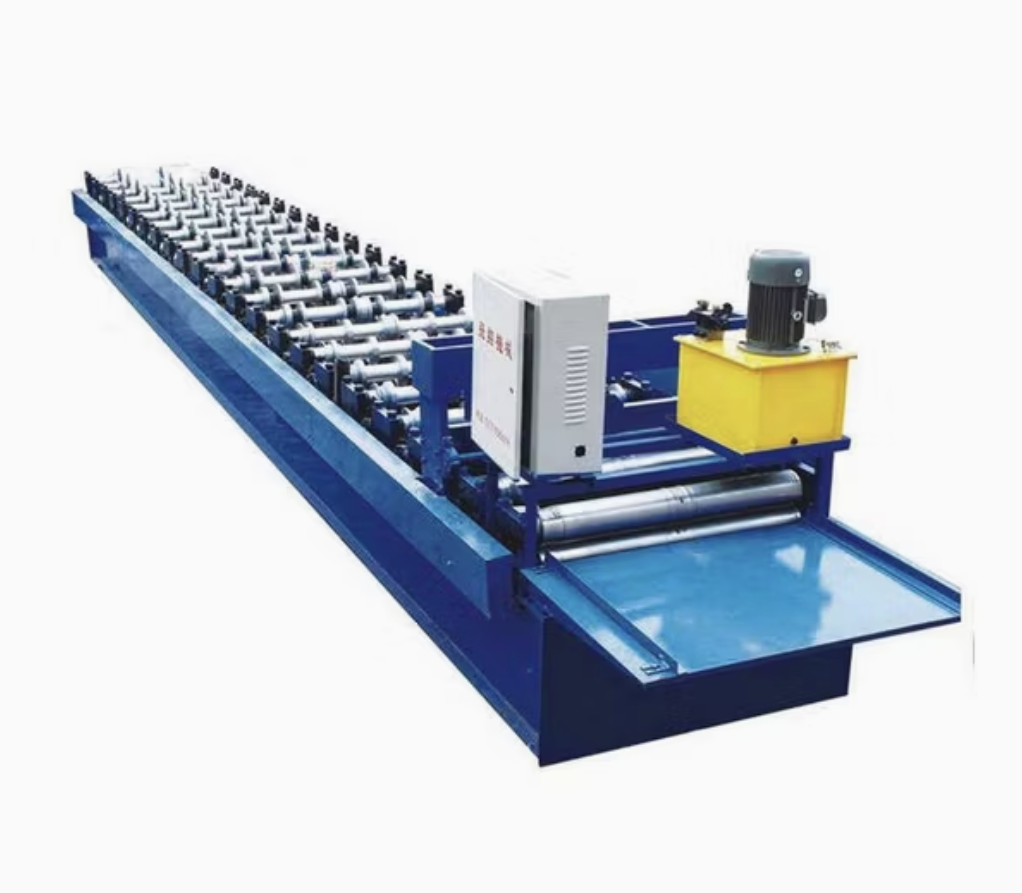To express an interest in this machine please submit the form below.

Not Sure What Machine You Need?
Select Your Profile, We'll Match It
Choose your desired profile drawing, and let Machine Matcher connect you with the best roll forming machine tailored to your needs.
Browse Profiles


A Panel Roll Forming Machine is a specialized type of roll forming equipment designed to produce consistent, high-quality metal panels used for construction, roofing, and siding applications. These machines are engineered to handle a range of materials, including steel, aluminum, and galvanized metal, providing panels with precise profiles, dimensions, and structural integrity.
Panel roll forming machines are highly automated, equipped with PLC systems for precise control over operations. They feature a series of roller stations that progressively shape the metal into the desired panel profile. The machine’s cutting and punching systems allow customization to meet various industry requirements, making it a versatile solution for manufacturers of roofing panels, wall cladding, and other construction panels.
Q1: What types of panels can a Panel Roll Forming Machine produce?
A Panel Roll Forming Machine can produce a variety of panels, including roofing panels, wall cladding, ceiling panels, and decorative panels. Different roll sets and configurations allow the machine to create specific profiles required by the customer.
Q2: What materials are compatible with a Panel Roll Forming Machine?
These machines typically handle a wide range of materials, including galvanized steel, aluminum, and sometimes pre-painted metal coils. Material compatibility can vary depending on the machine’s roller design, motor capacity, and frame strength.
Q3: How does the machine handle different panel lengths?
Most Panel Roll Forming Machines are equipped with a PLC system that allows precise control over panel length, with programmable settings to adjust as needed. The hydraulic cutting system then trims the panel to the exact length specified in the program.
Q4: Can this machine accommodate different thicknesses of metal sheets?
Yes, most panel roll forming machines are versatile in handling different material gauges, typically ranging from 0.3 mm to 1.2 mm. Adjustments in roller alignment and motor power settings help ensure quality forming across varying thicknesses.
Q5: What maintenance is required for a Panel Roll Forming Machine?
Regular maintenance includes lubrication of moving parts, inspection of roller alignment, and checking the hydraulic and electrical systems. Periodic cleaning, recalibration, and checking for wear on the rollers and cutting blades are also recommended for optimal performance.
Q6: Is operator training necessary for running a Panel Roll Forming Machine?
Yes, operator training is essential, especially for setting up the PLC system, adjusting rollers, and performing maintenance. Most manufacturers provide training or have manuals, but knowledge of machine operations and safety is crucial for effective and safe use.
Q7: What are the production speed options?
Production speed varies by machine model, but most panel roll forming machines operate between 10-25 meters per minute. Adjustable speed controls in the PLC system help tailor the pace based on material and profile requirements.
Q8: How customizable is a Panel Roll Forming Machine?
Panel roll forming machines are highly customizable. Manufacturers can provide tailored solutions such as specific roller configurations, punch and notch systems, and material feed systems to match exact customer needs.
Q9: What industries typically use Panel Roll Forming Machines?
These machines are essential in the construction industry for roofing, siding, and wall cladding. They are also used in architecture for decorative panels and sometimes in the agricultural and industrial sectors for creating durable paneling solutions.
Q10: Are there limitations to the panel profiles that can be created?
While panel roll forming machines are versatile, certain complex profiles may require additional tooling or specialized roll forming equipment. Consulting with the manufacturer on profile specifications ensures feasibility.
Copyright 2026 © Machine Matcher.